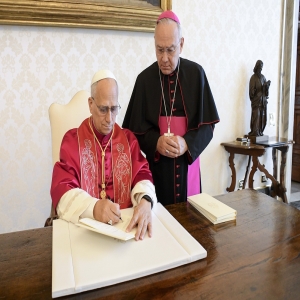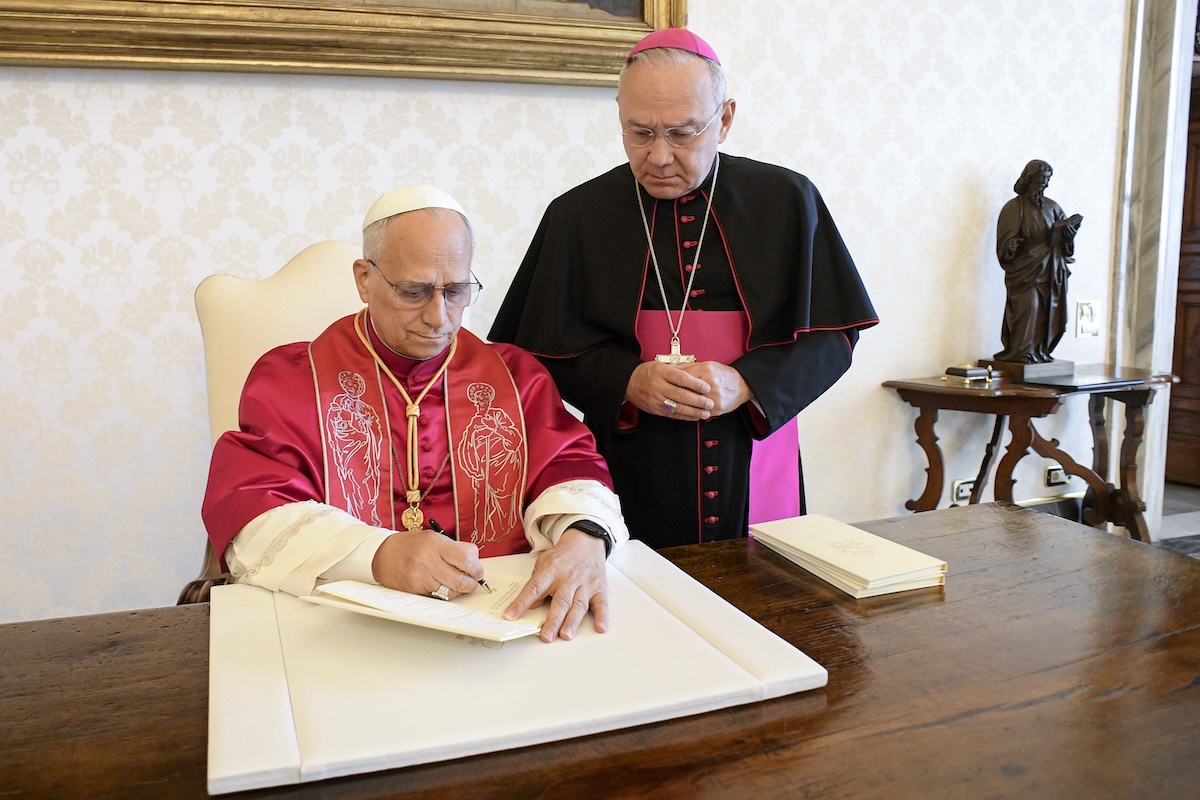

In his first apostolic exhortation, Dilexi te ("I Have Loved You"), Pope Leo XIV articulates a deeply pastoral and theological vision of Christian charity centred on love for the poor. Given in Rome, at Saint Peter's, on 4 October, the Memorial of Saint Francis of Assisi, in the year 2025, during the first year of his pontificate, this first apostolic exhortation reaffirms the Church's preferential option for the poor as a central ex
Rooted in Scripture and the Church's social teaching, the exhortation challenges both individual believers and ecclesial institutions to rediscover the transformative power of mercy in a world marked by inequality and indifference.
Theological Foundations: Love as the Heart of the Gospel
Pope Leo XIV begins Dilexi te with a reflection on divine love as the origin and measure of all Christian action. Drawing on the words of Christ, "As I have loved you, so you must love one another" (John 13:34), he interprets love not merely as sentiment but as an active participation in God's salvific work.
The Pope situates this reflection within the broader context of the Trinity: the Father's creative generosity, the Son's redemptive compassion, and the Spirit's unifying presence. He reminds the faithful that every act of love toward the poor is a participation in this divine communion, a visible sign of the transformative power of mercy that sustains the Church.
While the apostolic exhortation draws strong continuity with the writings of previous pontiffs, particularly Deus Caritas Est (Pope Benedict XVI) and Evangelii Gaudium (Pope Francis), Pope Leo XIV gives the theme a distinctive emphasis. He frames poverty not only as a social concern but as a spiritual encounter. "The poor," he writes, "are not merely recipients of our assistance; they are the sacrament of Christ's own poverty, through whom we recognise our dependence on divine mercy."
This unique theological vision transforms charity from a mere act of philanthropy into a mutual relationship of grace and humility.
Social Analysis: The Cry of the Poor in a Fractured World
Following his theological exposition, Pope Leo XIV turns to a sober analysis of contemporary social realities. He identifies growing economic inequality, technological exclusion, and environmental degradation as interconnected crises that particularly burden the poor. Echoing the prophetic tone of Laudato Si', he laments a "globalisation of indifference" that numbs consciences and fractures communities.
The Pope denounces economic systems that prioritise profit over human dignity, emphasising that love for the poor requires not only almsgiving but a deep and committed structural conversion, reordering social, economic, and political priorities toward justice.
In this context, Dilexi te urges the Church to become "a community of compassionate solidarity." Leo XIV challenges ecclesial institutions to examine their own practices and resources, ensuring that their mission and finances reflect a genuine commitment to the marginalised.
He calls for renewed collaboration between the Church and civil society, particularly in education, healthcare, and ecological stewardship, emphasising the Church's pivotal role in these areas as concrete ex
Pastoral Call: Conversion of Hearts and Communities
The heart of Dilexi te lies in its pastoral appeal. The Pope insists that genuine love for the poor must begin with interior conversion. He invites every Christian to "see with the eyes of the poor," cultivating empathy, humility, and gratitude. This conversion, he writes, "is not achieved through guilt but through grace, a grace that frees us from the illusion of self-sufficiency."
The exhortation calls for spiritual disciplines such as simplicity, fasting, and acts of mercy as ways to grow in solidarity with those who suffer deprivation. Pope Leo XIV places special emphasis on youth and families, urging them to embrace a "culture of encounter." He notes that many young people are disillusioned with consumerism and seek authenticity in service and justice.
The Church, he asserts, must accompany them in transforming compassion into action. Parish communities are encouraged to become "schools of love," where faith is lived through concrete service to neighbours in need.
Hope and Mission: The Poor as Teachers of Faith
The exhortation concludes with a meditation on hope. For Pope Leo XIV, love for the poor is not merely an ethical obligation but a source of renewal for the entire Church. He describes the poor as "teachers of faith," whose trust in God reveals the true face of discipleship. "In their endurance," he writes, "we see the mystery of the Cross; in their joy, the first light of the Resurrection." This eschatological vision frames service to the poor as participation in God's promise of new creation.
Ultimately, Dilexi te urgently calls the Church to a renewed simplicity, compassion, and solidarity. By loving the poor, Christians encounter Christ himself and make visible the love that sustains creation. The exhortation thus stands as Pope Leo XIV's defining invitation: to rediscover the Gospel through the eyes of the poor, to love as God has loved humanity, freely, humbly, and without measure.
Therefore, in essence, Dilexi te calls the global Church to re-centre its life and mission on compassionate love, transforming both hearts and societies. By uniting contemplation and action, theology and justice, Pope Leo XIV offers a renewed vision of the Gospel as lived solidarity with the poor, the very heart of Christian discipleship.